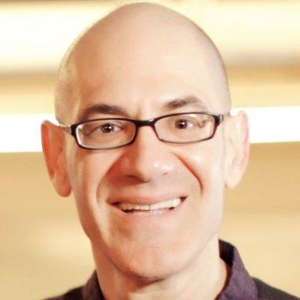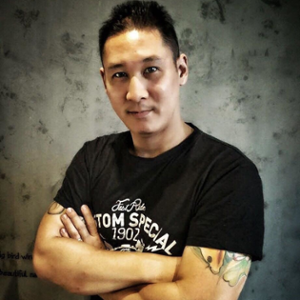
Steven Hoffman
Chairman at Founders SpaceIn Silicon Valley, Steven Hoffman is known as Captain Hoff. He’s the Captain and Chairman of Founders Space, where he has educated and trained hundreds of startup founders and corporate executives in the art of innovation.
Always innovating on his life, Hoffman has tried more professions than cats have lives, including serial entrepreneur, venture capitalist, angel investor, mobile studio head, computer engineer, filmmaker, Hollywood TV exec, published author, coder, game designer, manga rewriter, animator and voice actor.
As a boy Hoffman dreamed of making movies and games. He created over 50 short films and 80 games before graduating high school. Pursuing his passions, he earned a BS in Computer Engineering from UC Santa Barbara and a Masters in Cinema Television from USC.
His first job in Hollywood was reading TV scripts, but he quickly rose to development executive. Moving to Japan, he went on to work at Sega, where his group collaborated with Hollywood on interactive movies and games.
Upon returning to Silicon Valley, Hoffman founded LavaMind, which produced dozens of online and mobile games, as well as designed digital products for Disney, Qualcomm, Intel, MetLife and Sesame Workshop.
Hoffman launched Spiderdance, his second startup, producing interactive TV shows for MTV, NBC, Warner Brothers, TBS, Sony and A&E. At the same time, Hoffman helped found the Academy of Television’s Interactive Media Group and the Producers Guild New Media Council.
After writing a book on game design, Hoffman joined Infospace, as their North American Studio Head, where he ran US mobile games. Hoffman then cofounded three venture funded startups focused on media, games and entertainment.
Today, Hoffman heads Founders Space and works with entrepreneurs, corporate executives, and investors in 22 countries to create innovations that rock the world!

Moya Li
Founder of LocationHunterMoya Li is the founder of China-based LocationHunter. Beijinger by adoption, Moya knows the city by heart, especially when it comes to secret and special locations. Together with her team, she is able to recommend different exciting venues&experiences to their customers, who take it from there and organise events.

Nathan Siy
CEO of Evoke MotorcyclesI learned to ride long before I learned to drive. What started off as an interest in downhill mountain biking and BMXing, grew into a full blown obsession with motorcycles and cars.
In high school, my parents didn't approve of riding motorcycles, so I hid my first bike around the corner from our house. Around the time I got my second or third bike, they had found out and realized that there was no dissuading me from this lifestyle. My passion eventually led me to study engineering at the British Columbia Institute of Technology.
As an engineer, I'm always looking for the most efficient way to do things. Walking, driving, crawling, subways, taxis; they’re all inefficient, wasting tons of time and energy. The engineering mindset goes hand-in-hand with entrepreneurship, and at the age of 24, I opened my own mod and racing shop. We introduced the Canadian market to new styles and trends, and even build cars that were used in the 2 Fast 2 Furious movies.
After a few years, I was given the chance to move from Vancouver to Beijing for work. Originally, I had thought that riding in China wouldn't be difficult. But shortly after moving, I discovered that my assumptions were far from reality. Not only did most major cities ban motorcycles, but the government had stopped producing license plates in an effort to keep pollution from gas vehicles under control. The only way to drive legally was to buy a license plate off of someone who had previously wrecked their bike, and those could sell for as much as $15,000 USD. In contrast, electric vehicles aren't bound to any of these restrictions. Knowing this, it didn't make sense to ride a conventional gas motorcycle any longer. I decided to build my own electric motorcycle.
When I first started building, I reflected on the comments of friends and acquaintances who had tried and failed to successfully get into the riding lifestyle. The majority of them had said that they didn't understand how to ride, shift, or balance the bike; others didn't even bother trying, saying that they loved the idea but it was too loud or too scary. All of these issues could be and would be addressed with this bike. Anyone who wanted to ride, would be able to do it. That's when Evoke was born.